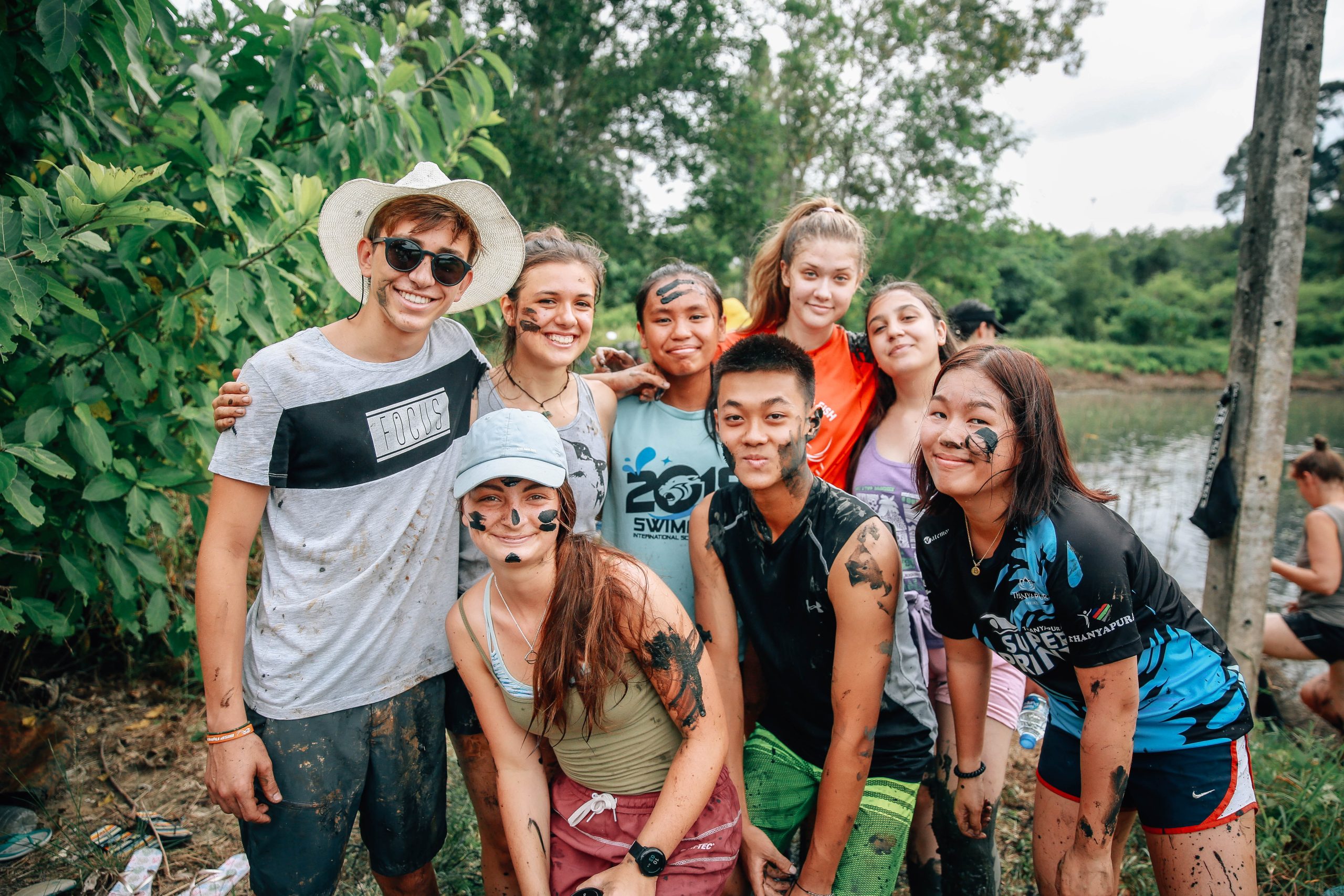Academic life at UWC
Most students attending UWC between the ages of 16 and 19 study the globally recognised International Baccalaureate Diploma Programme (IBDP), which is offered at all UWC schools and colleges. It is a challenging curriculum that allows students to explore a range of subjects and ideas, while developing their creativity and learning about the importance of activity and service in the community.
In fact, UWC played a key role in crafting the IBDP back in the 1960s, and the ties between the IB and UWC remain close decades later.
The IBDP aims to “encourage students across the world to become active, compassionate and lifelong learners who understand that other people, with their differences, can also be right.” It is respected in the best universities worldwide for the balance it strikes between breadth and depth of subjects and its focus on service, communication, teamwork, leadership and critical thinking.
“Nors IBDP kartais buvo šiek tiek varginantis ir reikėjo daug ko išmokti, apskritai -tai privertė mane daug labiau pasitikėti savimi ir išmokė mokytis. Mano pirmieji metai koledže jautėsi daug lengviau nei antrieji IBDP metai. Aš daug labiau tikiu dalykais, kuriuos sakau, nes juos tyrinėju, ir man daug geriau sekasi rašyti. ”
– Leonor, UWC Mahindra koledžo absolventė
Which subjects can students take for the IBDP?
Which subjects can students take for the IBDP?
IBDP students take a total of six subjects, one chosen from each of the following groups:
Mokiniai paprastai studijuoja tris dalykus standartiniu lygiu ir tris dalykus aukštesniajame lygyje. Aukštesniajame lygyje tikimasi, kad jie pademonstruos daugiau žinių, supratimo ir įgūdžių. Galimi dalykai įvairiose UWC mokyklose gali skirtis, dažnai atsižvelgiant į jų geografinę padėtį ir tikslines sritis. Be egzaminų, IBDP kursai taip pat apima kursinių darbų komponentus, leidžiančius studentams tęsti savo dalyko tyrimo temas. Daugelis studentų savo akademinį mokymąsi sieja su platesniais interesais tokiose srityse kaip tvarumas, tarpkultūrinis supratimas ir socialinis teisingumas.
IBDP subjects at UWC
IBDP subjects at UWC (in English)
As well as the six subject groups, students complete three core components of the IBDP, which are central to the philosophy of the programme. These are:
Extended Essay (EE): Students choose and investigate a topic of special interest, and develop the independent research and writing skills required at university level. The essay is typically written in one of the student’s six subjects and must be no more than 4,000 words in length. Students are supported in the research and writing process by an academic supervisor.
Theory of Knowledge (TOK): The course encourages students to reflect on the nature of knowledge and strengthen connections between their different subject areas. It is assessed through an exhibition and a written essay.
Creativity, Activity, Service (CAS): Taking responsibility, developing social, creative and outdoor skills, as well as learning to approach others with empathy are at the heart of the programme. Students engage in a variety of projects that aim to develop these skills, while at the same time actively engaging with their local community.
Other academic options at UWC
Other academic options at UWC
Once a UWC national committee-selected student is accepted by the college, they are able to apply to attend other IB programmes available at some of our UWC schools. Options available include:
- Tarptautinio bakalaureato karjeros programa (IBCP) – Pearson College, Kanadoje ir UWC Mastrichte, Nyderlanduose.
Kaip ir IBDP, IBCP (karjeros programa) yra griežta švietimo programa, suteikianti mokiniams galimybę specializuotis konkrečioje srityje. UWC IBCP mokiniai atlieka mažiausiai du IBDP kursus, su karjera susijusį tyrimą ir IBCP branduolį.
- UWC bandomoji programa: sistemų transformacijos kelias (STP) – UWC Atlantic, Velse ir UWC South East Asia, Singapūre.
Mokiniai, einantys pagal STP (pilotinę UWC taikomųjų sistemų programą), siekia pilno IB diplomo, tačiau studijuoja keturių įprastų IB dalykų derinį kartu su specialia tarpdisciplinine programa, skirta ugdyti įgūdžius, požiūrį ir gebėjimus, kurių jiems reikia norint įveikti sudėtingus ir tarpusavyje susijusius sisteminius iššūkius. Šis individualus kursas skaičiuojamas dviem standartinio IB lygio dalykams ir vertinamas ne per egzaminus, o atliekant autentiškas poveikio analizes, apmąstymus ir projektų portfelius.
